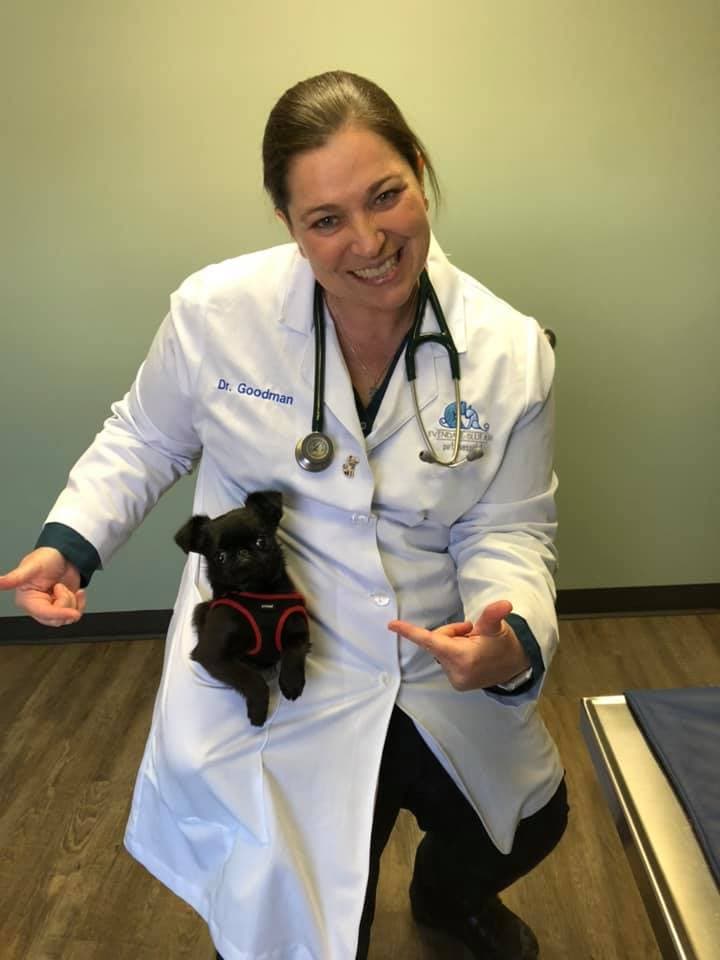Dog Heartworm Disease Information Direct from Veterinarians
Dog heartworm disease is a potentially fatal yet very preventable disease. If you've turned to the internet because you suspect your dog may be suffering from it, we highly recommend seeking immediate veterinary care. Hopefully, you're looking into the many dog heartworm preventatives. Either way, though, at GeniusVets, we believe that pet care information should come from veterinarians and not from Dr. Google, especially with such a serious topic. That’s why we’ve taken dog heartworm disease FAQs, sent these questions to renowned veterinarians across the U.S., and compiled their replies to get you useful information that you can trust.
While we've sourced all of the dog heartworm disease information and recommendations below directly from leading veterinarians across the country, please make sure to seek out the advice of your own veterinarian or find a trusted vet near you using the GeniusVets Directory.
What is heartworm disease, and how can it affect my dog?
Heartworm disease is precisely that—a worm or parasite that lives in the heart. Mosquitoes spread the disease. When pet owners hear the word “worm,” they often think, "Oh, my dog already had a test for worms." The standard test people do is a fecal or poop test, but heartworm disease is detected with a blood test.
The larvae go into the bloodstream, and when they reach adulthood, they inhabit the heart’s chambers, affecting cardiovascular and respiratory function, and other organ systems. In the long term, heartworm disease can cause severe heart and lung issues and systemic blood circulation problems. Keep in mind that just because you have a dog that’s primarily indoors doesn't mean they can’t get heartworm disease. Mosquitoes can fly into your house and bite your pet and inject the larvae there.
How would my dog catch heartworms?
Mosquitoes transmit heartworm disease. A mosquito bites a dog (or, really, feeds on their blood) infected with heartworm disease, picks up the larval stages from them, and then goes to another dog, bites that dog, and infects them. Because mosquitoes transmit it, we tend to see heartworm disease more frequently in coastal areas or areas that are very hot. However, there have been incidents of dog heartworm infections in all 50 states, which is why year-round prevention is so critical.
Can dog heartworms be prevented?
Absolutely—dog heartworm disease is a potentially fatal disease that can be prevented. While no prevention is 100 percent, the best chance of doing so is by having your dog on preventive medicine, whether it be orally, topically, or an injectable from your veterinarian. These medications can prevent the larvae from developing into more dangerous adult heartworms.
What are the signs in my dog that would indicate they may have heartworms?
As the disease progresses, the signs of heartworms progress from mild to more serious. Dogs with mild low heartworm burden can go asymptomatic, which means they don't show clinical signs during the disease’s early stages. As the disease progresses, you might notice a slight cough. As we start to get into more moderate and severe stages, we may hear a heart murmur during an exam. They may get enlarged liver or an enlarged heart and get fluid that backs up in their lungs and abdomen.
The signs you might see at home are lethargy, your dog having more difficulty breathing, exercise intolerance, and possibly bulging ribs because they can't catch their breath. If left untreated, dog heartworm disease can lead to death.
What are some middle to late-stage symptoms of heartworms?
If you have a severe worm burden, you can have congestion in the lungs or liver that may cause bulging ribs or abdomen. Your dog could also develop a heart murmur because of those worms affecting the heart’s function. Your dog may also pant or cough even while at rest because they can’t catch their breath due to the infected lungs.
To summarize, dog heartworm disease symptoms can include the following:
- A mild but persistent cough
- Fatigue after moderate activity
- A reluctance to exercise
- Decreased appetite
- Weight loss
- Swollen belly due to excess fluid in the abdomen
It can take six months for a sign to show signs of heartworm disease and, at that point, it's often critical, expensive to treat, and can be fatal—again, prevention is key!
What can be done to stabilize my dog's heartworm disease?
To stabilize heartworm disease, the first thing we'd have to do is confirm the stage. The other thing that we'd recommend immediately is to restrict the dog’s exercise. Even though your dog might still want to go out, don't let them. We may need to provide oxygen support and fluids to help with perfusion. Once you get these symptoms stabilized, then we make a treatment plan determined by a physical exam and further testing on your pet. After the treatment plan and testing and treatment have been initiated, we put them on a regular prevention regimen. Remember, though; we could avoid all those steps if we start prevention and keep them on it as they grow!
How soon should I bring my dog in to see a veterinarian for heartworm prevention?
Your dog should come in as soon as possible. We could start prevention as early as eight weeks old, but the first testing can be done at six months old. If you have a puppy, we recommend bringing them in as quickly as possible after you get them. Any dog over six months should have a heartworm test before starting heartworm prevention, which is why we recommend bringing in any rescues or adult adopted dogs as soon as possible. At that point, we can screen them for heartworm and then get them on heartworm prevention. Preventing heartworm disease is much easier than treating it.
How will a veterinarian diagnose dog heartworm disease?
Initially, we do an antigen test, which tells us that there are adult heartworms giving off a substance that's screened for in the bloodstream. If you want to confirm that diagnosis, you do something called a microfilaria test, which tests for the larvae in the blood. And that tells us whether we have an adult heartworm infestation that we need to deal with. We take a few drops of blood, drop it into a reagent, it runs, and in about 10 to 15 minutes we have our diagnosis. If that's positive, we may follow up with some other testing, such as X-rays, ultrasound of the heart, and some other blood tests, but that's how we start the process of diagnosing dog heartworm disease.
Why is early detection and diagnosis of heartworm disease so important?
Early detection and diagnosis of dog heartworm disease are crucial because that way, we can avoid the worm burden. What the worm burden means is the number of worms that have accumulated and can cause issues. Worms can grow to about a foot long, so imagine a foot-long worm living in a small dog's heart, and there could be hundreds of these worms! They can be very symptomatic as they start replicating and reproducing inside the system.
How long does dog heartworm treatment take?
The treatment for dog heartworm disease takes months. We have to give multiple injections certain months apart. We also have to do a regimen of antibiotics called Wolbachia—a symbiotic bacteria. Over these months, you have to enforce strict cage rest and no strenuous activity, so it’s not a fun time for you or your dog.
The AVMA is another great resource for dog heartworm disease. If you have further questions about dog heartworm disease and how to keep your dog heartworm-free, reach out to your veterinarian. If you don't have one yet, we can help you find a local veterinarian!
The Following Veterinarians
Contributed To The Dog Heartworm Information On This Page


The Ultimate Guide
to Dog Care
This free guide is an indispensable manual for dog ownership. Filled with veterinary advice and recommendations on every important topic at each stage of your dog’s life, this is all the stuff that responsible dog owners need to know. That is why we are making it free!






